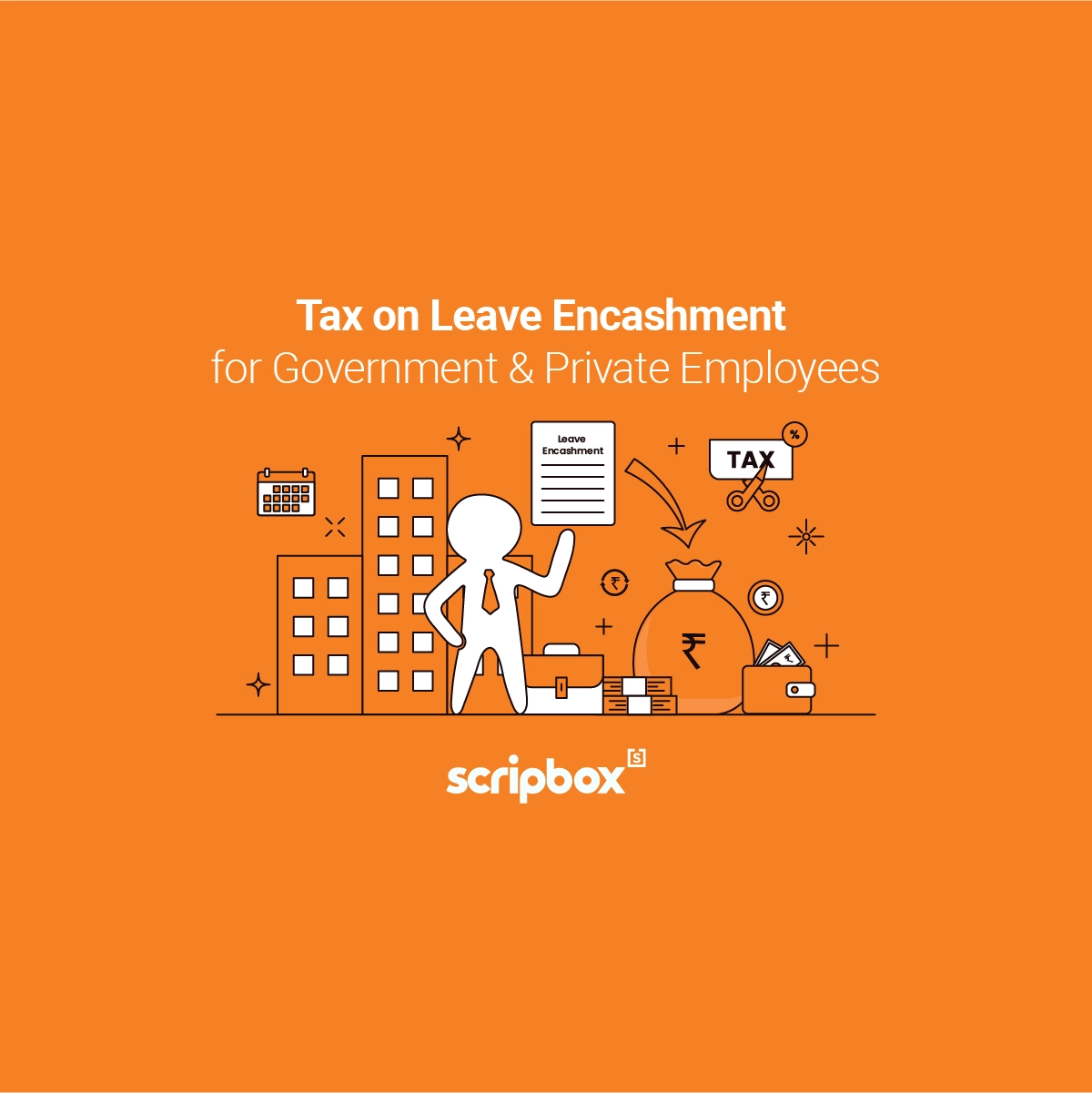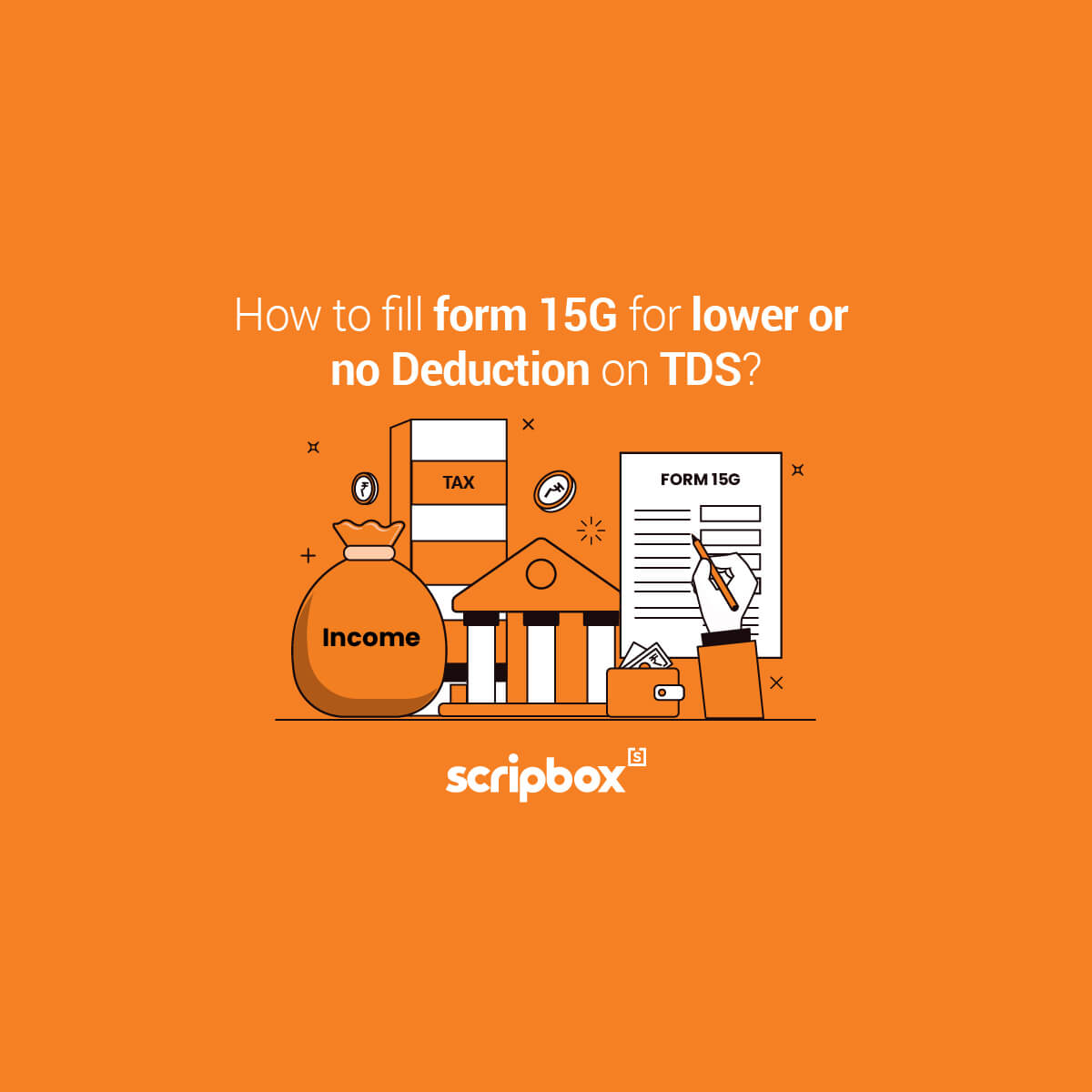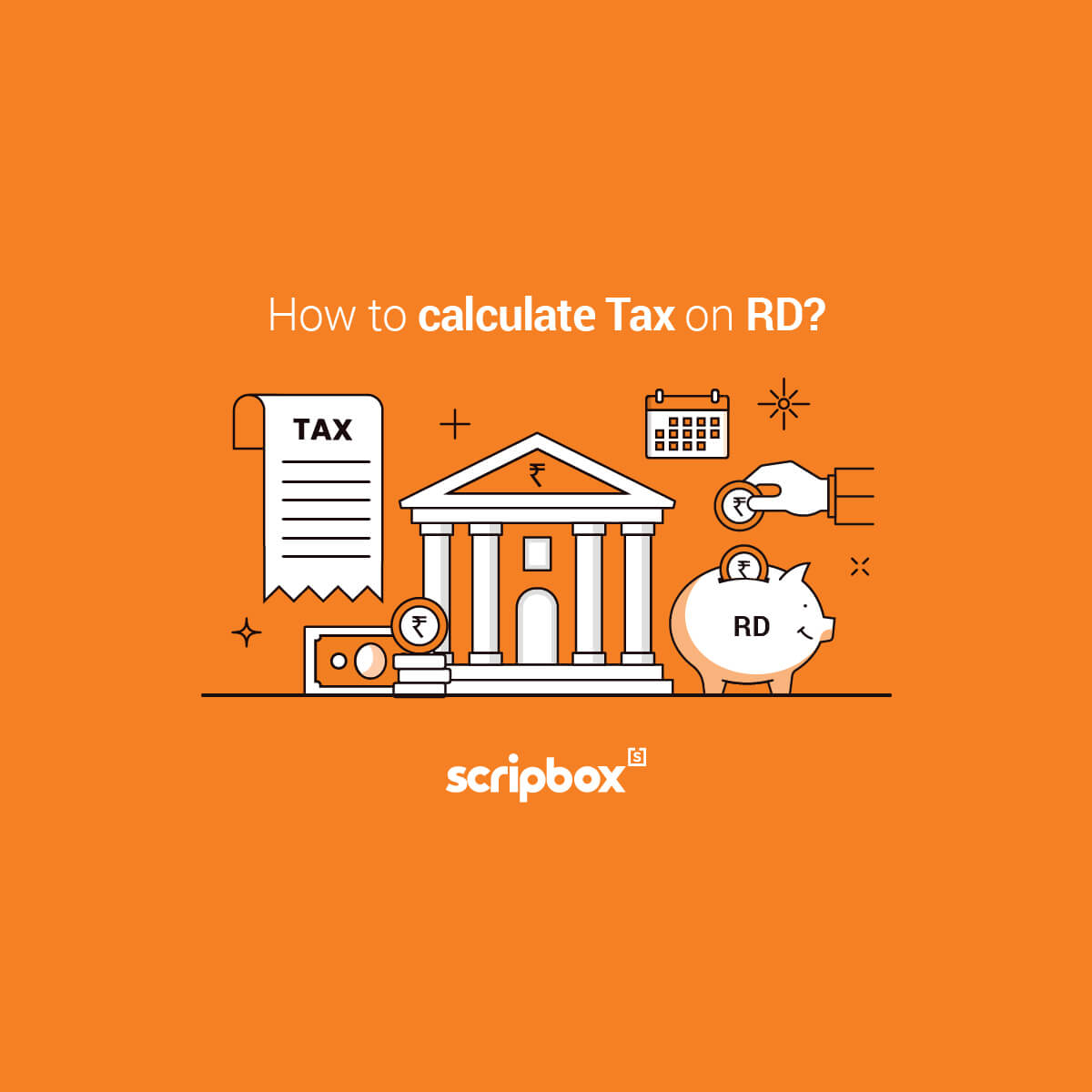Recurring deposits or RDs are similar to FDs; however, they are more flexible than FDs. Investors can invest a certain amount every month into their RD account from their savings bank account. Investors will receive guaranteed interest from banks which is taxable. In this article we have covered tax on RD.
Income Tax on Recurring Deposit (RD) Amount
Investment in bank RD is not eligible for tax exemption under Section 80C of the Income Tax, 1961. Therefore, one cannot claim a tax deduction for investment in any of the bank recurring deposits.
However, post office term deposit of 5 years is eligible for tax deduction under Section 80C of the Income Tax Act, 1961. Hence, one can claim tax benefits up to INR 1.5 lakhs by investing in post office TDs.
Recurring deposit schemes are investment options that allow investors to deposit a certain amount of money every month. RD schemes have an investment tenure of 6 months to 120 months. And investors can choose the investment tenure and the deposit amount as per their goals. Investors can invest with an amount as low as INR 10 in their RD account.
Income tax on interest earned on a Recurring Deposit (RD)
The interest income that one earns on a recurring deposit scheme is taxable. The tax rate applicable is as per the individual investor’s tax slab rates. One can use an income tax calculator to estimate their taxable income. Scripbox’s income tax calculator is available online for free, and one can use it to estimate their tax liability.
Investors will receive the investment and the interest amount upon maturity. Also, interest on bank RD is compounded every quarter. One can use a recurring deposit calculator to estimate the maturity amount from an RD investment. Scripbox’s recurring deposit calculator is available online for free.
TDS on interest earned on a Recurring Deposit
Banks deduct TDS or tax deducted at source on the interest that one earns on RD investments. However, the rate of TDS is different when the PAN Card is furnished and when the PAN Card isn’t furnished.
- When PAN Card is furnished: The rate of TDS that the bank cuts is 10%. For regular citizens the TDS threshold limit is INR 40,000. In other words, if the interest income exceeds INR 40,000 then the bank will cut TDS. Else it will not cut TDS and credit the entire interest in the investor’s bank account. For senior citizens the TDS threshold limit is INR 50,000.
- When PAN Card isn’t furnished: The rate of TDS that the bank cuts if the PAN Card isn’t furnished is 20%. The TDS threshold limit for regular citizens is INR 40,000 and for senior citizens is INR 50,000.
Form 15H and Form 15G for TDS deduction on RD
Form 15H and Form 15G are the forms that an Income tax payee can submit to prevent TDS deduction. However, subject to certain conditions.
Conditions for form 15H:
- The taxpayer should be an individual and a resident of India
- The taxpayer should be a senior citizen. This means at the time of filing the form, the age of the taxpayer should be 60.
- Tax on total income is nil.
Conditions for form 15G:
- An individual/HUF/trust or any other assessee. However, not a firm or company.
- Should be resident Indians
- Should be less than 60 years of age
- Tax on total income is nil.
The total interest income for the year is less than the basic exemption limit, i.e. INR 2,50,000.
Some banks allow individuals to submit the forms online through the bank’s website. Following are the things one should remember while filing the forms:
Validity: The forms are valid for only one year.
Details and PAN Card: One has to completely fill the form with all necessary details before submitting. Also, it is compulsory to submit the PAN Card details along with the form.
Form Submission: It is advisable to submit the forms at the beginning of the financial year. This is to ensure that the bank doesn’t deduct any TDS on the interest income.
Tax exemption on RD
Certain recurring deposit schemes qualify for tax exemption, although rare. Investment in Post Office RDs is not eligible for tax savings under Section 80C of the Income Tax Act, 1961. The interest earned on RD is taxable, and not tax exempted.
Tax on Post Office 5 Year RD
Post Office Recurring Deposit (PORD) is a post office savings scheme backed by the Government. Investors can invest in small amounts on a monthly basis up to a tenure of 60 months. The scheme flowers guaranteed returns in the form of interest.
Investment in Post Office RDs is not eligible for tax exemption under Section 80C of the Income Tax Act, 1961. However, the interest income is taxable in the hands of the depositor. It is taxable as per the investor’s income tax slab rate.
How to report interest earned on RD in ITR?
While filing income tax returns, it is mandatory to file income from other sources as well. Income from other sources is any income that does not fall under the other four heads. Few examples that fall under the ‘Income from other sources’ are interest from a savings bank account, FD, RD, dividend income, etc.
In the ITR form, interest from RD falls under the ‘Income from other sources’ head. Under this head, one has to enter the total amount of interest received from various deposits. Also, one can get an interest certificate from the post office branch.
In the ITR form, interest from RD falls under the ‘Income from other sources’ head. Under this head, one has to enter the total amount of interest received from various deposits. Also, one can get an interest certificate from the post office branch.
How is TDS calculated on RD?
Tax Deducted at Source or TDS is the tax the bank deducts on behalf of the income tax department and pays it to them. On RDs the TDS threshold limit is INR 40,000 per annum for regular citizens. For senior citizens, the TDS limit is INR 50,000 per annum. TDS will be deducted at 10% on the interest income if PAN Card details are disclosed. Else, the TDS rate is 20%.
Let’s take, for example, the interest from RD investment is INR 72,000 per annum. The TDS threshold limit for regular citizens is INR 40,000. This means the investor need not pay tax on INR 40,000. However, the investor has to pay tax on the remaining INR 32,000. The bank will deduct a 10% TDS on INR 3,200 and pay the investor the rest of the amount. Hence the investor will receive INR 28,800 (INR 32,000-INR 3,200).
Frequently Asked Questions
No, Post Office RDs are not tax free. The investment in Post Office RDs is not eligible for tax savings under Section 80C of the Income Tax Act, 1961. Investors can claim the tax benefit while ITR filing. However, the interest income is taxable as per the individual’s income tax slab rate. Moreover, Post Office RDs are subject to TDS of 10%, if the interest income exceeds Rs 40,000 (INR 50,000 for senior citizens). The TDS rate is 20% if the PAN Card details are not disclosed.
The investor will receive interest plus investment amount upon maturity. However, only the interest income earned on RD is taxable at the time of maturity. RD’s interest should be added to ‘income from other sources’ while filing income tax returns. Hence the interest income earned on RD is taxable as per individual investor’s income tax slab rates. One can use an RD calculator to estimate the returns from an RD investment. Scripbox’s RD calculator is available online for free.
Yes, interest income that one earns on RD investments is taxable as per the individual investor’s income tax slab rate.
From AY 2020-2021, the TDS limit for interest income has been increased to INR 40,000 for regular citizens and INR 50,000 for senior citizens. Hence, if the bank recurring deposit scheme interest is below INR 40,000, the bank will not cut TDS and credit the entire interest into one’s bank account. However, this income is not tax free. Investors need to show this interest income under the head ‘income from other sources’ while filing their income tax returns. The interest income is taxable at the individual investor’s income tax slab rates.
Related Articles
- Income Tax on Recurring Deposit (RD) Amount
- Income tax on interest earned on a Recurring Deposit (RD)
- TDS on interest earned on a Recurring Deposit
- Form 15H and Form 15G for TDS deduction on RD
- Tax exemption on RD
- Tax on Post Office 5 Year RD
- How to report interest earned on RD in ITR?
- How is TDS calculated on RD?
- Frequently Asked Questions
























Show comments